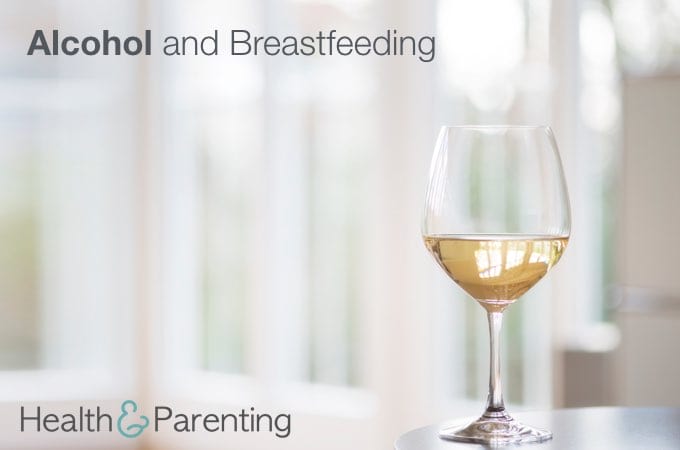When you were pregnant, you likely abstained from alcohol. Now that your baby is born and you’re breastfeeding, you may wonder if you still need to refrain from drinking alcoholic beverages. Here’s the low-down on alcohol and breastfeeding.
Alcohol passes in and out of your breastmilk in the same way as it does in your bloodstream. So if you aren’t feeling the effects of the drink, then it’s likely that your baby would not be exposed to enough alcohol through breastmilk for it to be a concern.
According to the American Academy of Pediatrics, an occasional drink has not been found to be harmful to a breastfeeding baby. They suggest feeding your baby right before you enjoy a drink, then waiting two hours or more to minimize baby’s exposure. Even if you’re baby is hungry during that time, the dose of alcohol your baby would get is minimal (if you’ve had only one drink).
It takes about two to three hours for a 120-pound woman to eliminate one serving of beer or wine from her system. This rate changes depending on maternal weight, as well as whether or not you are eating or snacking while you’re enjoying your beverage.
The effects on your baby are directly proportional to effects on you. Babies may be sleepy and hard to rouse, though they get less sleep overall. Also, research shows that babies nurse more often but take in less milk generally. Experts think this may be due to inhibition of mom’s letdown reflex, which is a side effect of drinking alcohol, or with the fact that alcohol may change the way the breastmilk tastes or smells (and baby just doesn’t like the new flavor!).
Additionally, baby’s immature liver can’t metabolize alcohol at the same rate as an adult liver. Around three months of age, baby’s body can better handle this process. So limiting exposure during those first three months may lessen the effects alcohol could have on your baby.
There’s no need to ‘pump and dump’ after having a drink. Other methods to try to speed your sobriety – such as drinking a lot of water, “sleeping it off”, or drinking coffee – will not speed up this process, either.
Keep these tips in mind if you plan to combine an occasional drink with breastfeeding:
• Limit the frequency of consumption for the first three months of baby’s life.
• Consider low alcohol or non-alcoholic alternatives.
• Dilute your beverage with carbonated or flavored water and sip it slowly.
• Eat with your drink.
• Limit yourself to a single beer or glass of wine.
• Nurse your baby immediately before having a drink.
• Wait two to three hours after you’ve had a drink to nurse again.
Even though with these tips in mind an occasional drink may not harm your baby, ultimately it’s best not to drink alcohol or smoke at all while breastfeeding.
Written by Michelle, childbirth instructor, lactation consultant, and mother to 4 busy kids
This information is not intended to replace the advice of a trained medical doctor. Health & Parenting Ltd disclaims any liability for the decisions you make based on this information, which is provided to you on a general information basis only and not as a substitute for personalized medical advice. All contents copyright © Health & Parenting Ltd 2016. All rights reserved.










